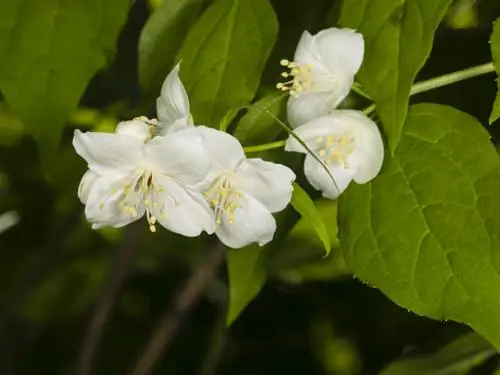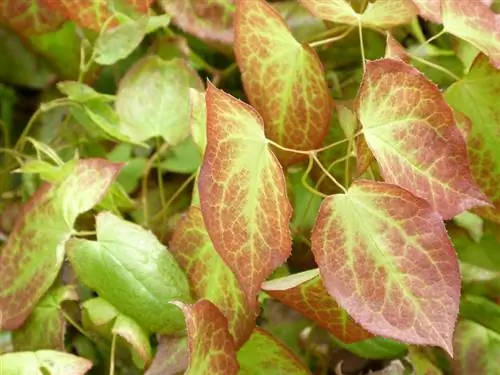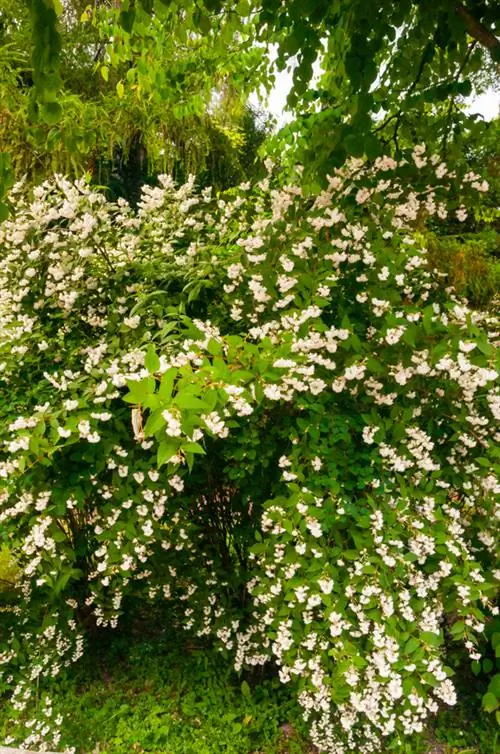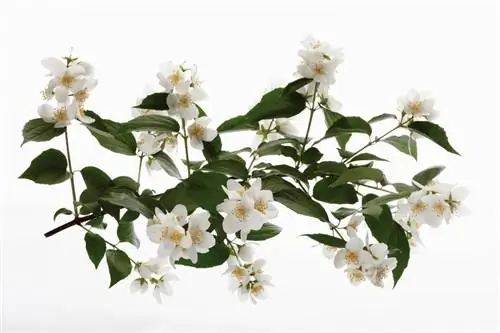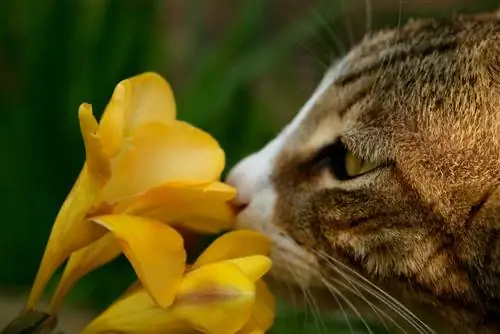- Author admin leonars@hobbygardeners.com.
- Public 2023-12-16 16:46.
- Last modified 2025-06-01 06:02.
Most varieties of scented jasmine were originally not poisonous. However, through numerous crossings and hybrid breeding, poisonous and non-poisonous species have been mixed, so that many of the shrubs grown today contain toxins.
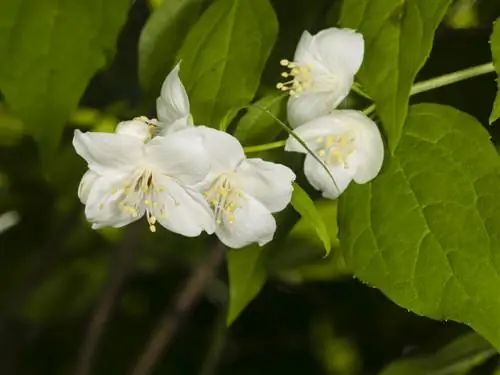
Is scented jasmine poisonous or non-toxic?
Scented jasmine can be poisonous in some varieties because crosses and hybrid breeding have mixed non-toxic and poisonous species. Be careful with unknown varieties as essential oils in the plant juices can cause skin inflammation.
Scented jasmine - poisonous or not?
The only thing that is certain is that the original forms of scented jasmine were non-toxic. If you have a reliable nursery nearby that specializes in growing heritage species, you can be more certain of getting non-poisonous shrubs.
If you don't know anything about the specific variety, you should exercise caution when planting scented jasmine. The bushes and especially the plant juices can contain essential oils that cause inflammation upon contact with the skin.
When cutting, always wear gloves (€14.00 on Amazon) and keep children and animals away.
Tip
In contrast to real jasmine, scented jasmine, also called farmer's jasmine or false jasmine, is native to our latitudes. The ornamental shrubs are hardy and are suitable as a single shrub or hedge plant.

